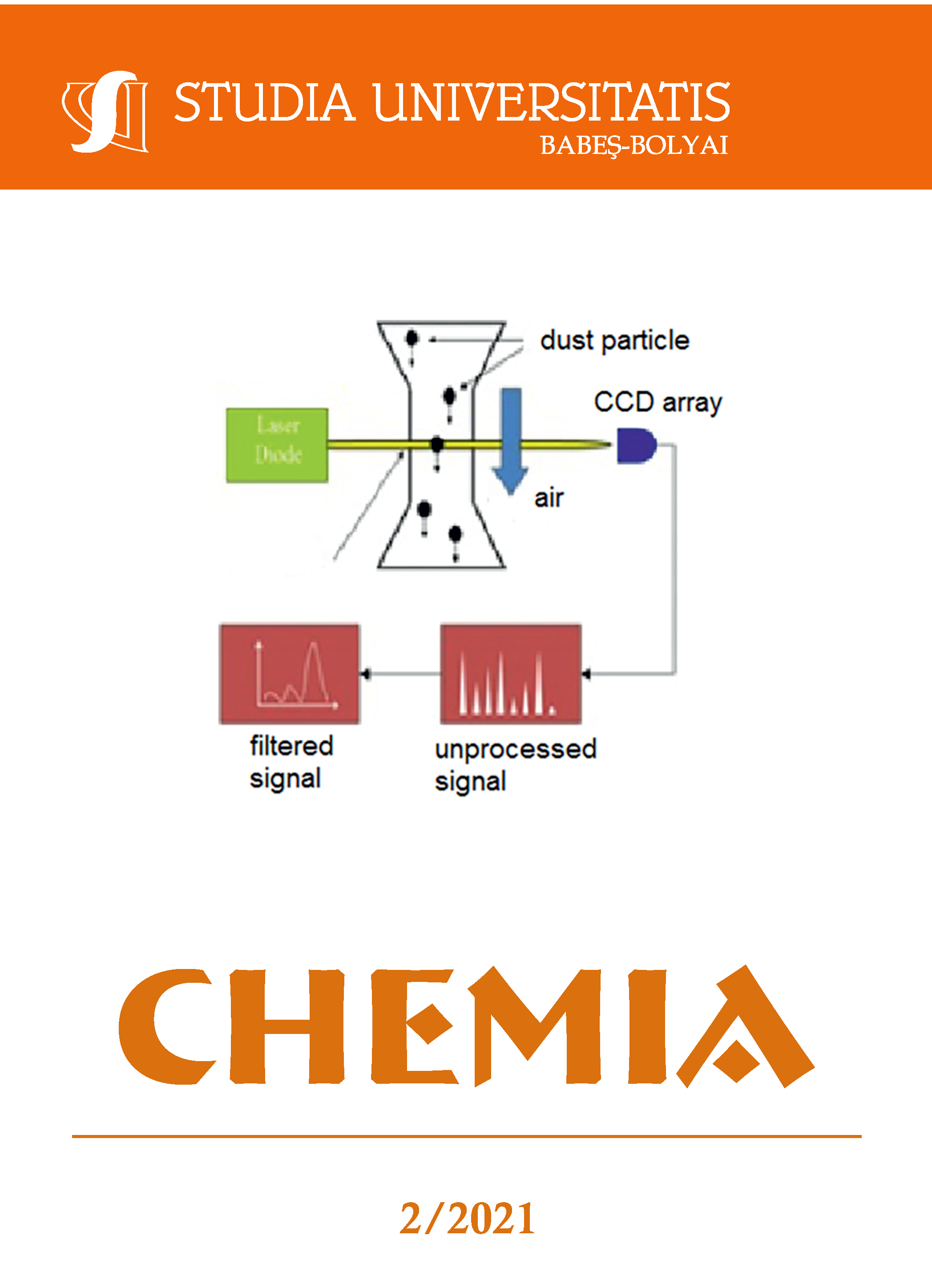OPTIMIZATION OF GOLD SORPTION FROM AMMONIACAL THIOSULPHATE SOLUTION ON ANION EXCHANGE FIBER USING TAGUCHI EXPERIMENTAL DESIGN
DOI:
https://doi.org/10.24193/subbchem.2021.02.13Keywords:
gold sorption, anion exchange fiber, Taguchi experimental design, ANOVA.Abstract
Taguchi experimental design was used to optimize the experimental parameters for Au sorption from ammoniacal thiosulfate solutions containing 2 mg/L Cu complexed as cuprous thiosulfate [Cu(S2O3)3]5− onto anion exchange fiber (METALICAPT® MFH11). An L9 orthogonal array was chosen to study the effect of three parameters, namely Au initial concentration (10-30 mg/L), fiber quantity (0.05-0.55 g) and temperature (20-30°C). The sorption tests were carried out in batch mode at a stirring rate of 500 rpm and pH of 9.3. The experimental data were processed using signal-to-noise ratio and the analysis of variance was used to determine the most significant parameters. The optimal conditions for Au sorption were found to be 30 mg/L Au concentration, 0.05 g of fiber and temperature of 20°C. The obtained results indicated fiber quantity as the most influential parameter on Au sorption with a contribution of 66%, followed by Au initial concentration with a contribution of 33%. In the optimal conditions, the sorption capacity of the fiber was found to be 16.8 mg/g, in good agreement with the predicted result by Taguchi method (16.7 mg/g). Further investigations are necessary to examine the elution behavior of gold from the fiber.
References
F. Liu; S. Hua; L. Zhou; B. Hu; Int. J. Biol. Macromol., 2021, 173, 457-466.
Z. Chang; F. Li; X. Qi; B. Jiang; J. Kou; C. Sun; J. Hazard. Mater., 2020, 391, 122175.
F.R. Escobar-Ledesma; C.F. Aragón-Tobar; P.J. Espinoza-Montero; E. de la Torre-Chauvin. Molecules, 2020, 25(12), 2902.
B. Xu; W. Kong; Q. Li; Y. Yang; T. Jiang; X. Liu; Metals, 2017, 7, 222.
A. Mohebbi; A. Abolghasemi Mahani; A. Izadi Ion Exchange Resin Technology in Recovery of Precious and Noble Metals. In Applications of Ion Exchange Materials in Chemical and Food Industries; M. Inamuddin, T. A. Rangreez, A. M. Asiri Eds. Springer, 2019, Chapter, pp. 193-258
A. Azizitorghabeh; J. Wang; J.A. Ramsay; A. Ghahreman; Miner. Eng., 2021, 160, 106689.
Y. Javadi; S. Sadeghi; M.A. Najafabadi; Mater. Des., 2014, 55, 27-34.
G. Zolfaghari; A. Esmaili-Sari; M. Anbia; H. Younesi; S. Amirmahmoodi; A. Ghafari-Nazari; J. Hazard. Mater., 2011, 192, 1046-1055.
B.G. Park; S. Gyeong Kim; J. Soo Ko; Int. J. Prec. Eng. Man., 2019, 20, 437-442.
S.H. EL-Moslamy; M.F. Elkady; A.H. Rezk; Y. R. Abdel-Fattah; Sci. Rep., 2017, 7, 45297.
S. Rizal; C.K. Abdullah; N.G. Olaiya; N.A. Sri Aprilia; I. Zein; I. Surya; H.P.S. Abdul Khalil; Applied Sciences, 2020, 10.
V.C. Srivastava; I.D. Mall; I.M. Mishra; Industrial & Engineering Chemistry Research, 2007, 46, 5697-5706.
L. Liu, Y. Wan, Y. Xie, R. Zhai, B. Zhang, Jindun Liu, Chem. Eng. J., 2012, 187, 210-216I.
Ben-Gal; IEEE Transactions on Reliability, 2005, 54, 381-388.
K. Bellir; M.B. Lehocine; A.-H. Meniai; Desalin. Water Treat., 2013, 51, 5035-5048.
V.C. Srivastava; I.D. Mall; I.M. Mishra; Chem. Eng. J., 2008, 140, 136-144.
Downloads
Published
How to Cite
Issue
Section
License
Copyright (c) 2021 Studia Universitatis Babeș-Bolyai Chemia

This work is licensed under a Creative Commons Attribution-NonCommercial-NoDerivatives 4.0 International License.



